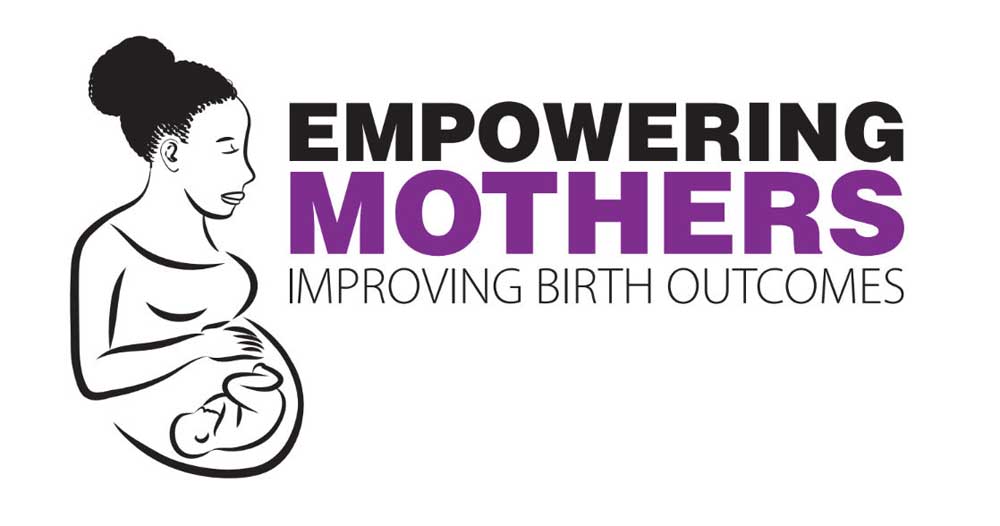Empowering Mothers: Fathers, siblings, learn to care for baby too
Published 10:30 pm Saturday, June 15, 2019

- Empowering Mothers - Improving Birth Outcomes is a 6-part series.
With a pink bow in her hair, a frilly skirt and gold shoes on, infant Audrey Lemus is encouraged to crawl across a soft blanket on the living room floor, to sit up, to roll over and to reach for objects with her small hands.
The Lemus family, of Tyler, is working with a parent educator through the Parents as Teachers program to be the best parents they can be for their 10-month-old daughter who has a rare condition called semi-lobar holoprosencephaly.
Parents as Teachers (PAT) is an international program that pairs parents and caregivers with a parent educator from pregnancy through the child entering kindergarten.
In Smith County, the Lemus family is the first to have a child with a severe disability enrolled in PAT. Semi-lobar holoprosencephaly is a condition where the left and right sides of the brain are fused together in the front and sides of the brain and only divided into two hemispheres in the back. Life expectancy for people with holoprosencephaly varies and many have facial deformities, trouble feeding, motor impairment, seizures and developmental and intellectual delays.
“When I was pregnant with her, they told me if I wanted to get an abortion I could,” Isabel Lemus said. “When she was born they prepared us — me, my husband and our four kids — that maybe she was going to live two months, at the most maybe two years.”
Many children with holoprosencephaly die before birth in a miscarriage or shortly after birth.
“Our 10-year-old daughter took the news the hardest because she was expecting a little sister, and we told her we might only have her for two weeks or for two months, so she’ll have to take advantage of that time,” Mauricio Lemus said. “Then we said, let’s forget about that. She’ll be with us as long as God wants us to be with her.”
This Father’s Day as Audrey approaches her first birthday, dad Mauricio Lemus, 37, and mother Isabel, 39, are living each day with Audrey to the fullest, and they’re grateful to have PAT parent educator Maribel Zendejas work with them. Zendejas is teaching the Lemuses ways to improve Audrey’s motor skills, such as encouraging her to open and close her hands to grasp objects.
Mauricio Lemus manages a restaurant in Tyler and he says he’s fortunate to have a flexible job that allows him to work around Audrey’s schedule of attending specialist appointments in Dallas.
With home visits with PAT every two weeks and a weekly visit from a physical therapist, Audrey is already exceeding her parents’ expectations.
“She eats, she smiles, she recognizes everybody,” Mauricio Lemus said.
“Doctors told us she would never smile,” Isabel Lemus said.
Zendejas works with her clients to make a plan for areas that mom and dad want to target. She brings books for the family to read together and she teaches her parents how to make toys out of everyday objects at the home such as rattles and measuring cups.
“We want to enforce parent-child interaction,” she said.
“With Audrey, we have to show her the toy, how to grab the toy and how to stay seated,” her mother said. “With our other babies, they drank from the bottle in the stroller or in bed, but with Audrey we have to watch her until she finishes the bottle. It’s a lot of work because we weren’t used to it, but it’s worth it.”
The Parents as Teachers model is framed around four key components: personal visits, group connections, children screenings and resource network. During visits, parent educators assess family needs and help the parents to set family goals.
“It’s not mothers as teachers, it’s called Parents as Teachers because we try really hard to involve dad,” said Shawn Longoria, PAT program coordinator for Gregg and Smith County and Harrison County. “A lot of times dad can’t be there because he’s at work, but we have a lending library and we leave activity pages for dads, caregivers, grandparents or whoever the family wants to be involved.”
Parent educators provide information and resources so that parents can be confident in the emotional, behavioral and physical development of their children. The home visits focus on parent-child interaction, development-centered parenting and family well-being.
“At the home visits, we do an activity together,” Zendejas said. “At the next visit I want mom to tell me how the activity went with the kids and dad.”
Isabel Lemus notes that Audrey’s siblings are benefiting from PAT as well. Though Audrey is developmentally delayed, she believes Audrey will look up to her older siblings and be encouraged to learn how to run and play like they do.
“I learned that my kids can be a role model to Audrey,” Isabel Lemus said. “They read to her, they even read their homework out loud to her.”
The 2017-2018 Parents as Teachers Affiliate Performance Report showed that 987 affiliates implemented the evidence-based model in the U.S. representing 8,221 ZIP codes where families and children received Parents as Teachers model services.
Eighty percent of these families served had one or more of the following high-needs characteristics: low income, caregiver with low educational attainment, child with disabilities or a chronic health condition, a parent with a mental illness, a teen parent.
A study from the Journal of Child Abuse and Neglect states that there’s a 22 percent decreased likelihood of substantiated cases of child maltreatment for Parents as Teachers children.
“I try to make sure that the family is OK, I address that first — how’s dad, how’s the kids, concerns over insurance, doctor’s appointments, so we bring them information and resources,” Zendejas said.
Parents as Teachers children performed better on English standardized tests scores, phonics and reading comprehension tests, and reading and writing assessments, and had larger gains in math standardized test scores, according to Children and Youth Services Review, a monthly journal that covers the study of social service programs pertaining to children and youth.
The children also had lower school absence rates for four school years and fewer suspension days for one school year.
Parents as Teachers says that through the program, parent educators have identified potential delays and health concerns in children. These potential delays and concerns identified by the program included:
10,377 developmental
2,881 social-emotional
4,897 hearing
2,228 vision
2,575 physical health
Parents as Teachers is available in Gregg County, Harrison County and Smith County with funding through a Maternal, Infant and Early Childhood Home Visiting (MIECHV) grant.
In Tyler and Smith County, PAT is operated through the University of Texas Health Science Center at Tyler.
In Longview and Gregg County, PAT is operated through Wellness Pointe.
Families are enrolled based on availability, and priority is given to families in higher-risk situations.
“Transportation is a big issue,” Longoria said. “In Longview we see a lot of homes that share one vehicle, and dad has the vehicle at work, so the home visiting component allowed the family to learn in the comfort of their home. It also helps parents realize they have all the tools they need at home to teach their children. They don’t need expensive items or the newest gadgets. The important thing is the relationship between the parent and child.”
The PAT program in Gregg County has a capacity for 80 families at one time. In Smith County, the capacity is 60 families. Additional families are placed on a wait list until enrolled families graduate from the program.
“We know parenting is hard, so if there’s something out there that can support us as parents and make our children more well-rounded and ready to go for school, that helps that happen,” Longoria said. “That betters our community because our future is our children. We’re going to benefit our community as a whole.”
TWITTER: @TMT_Sarah
- This is Part 6 of the 6-part series Empowering Mothers – Improving Birth Outcomes.
Part 1: A Tyler woman’s account of losing a child due to preeclampsia
Part 2: A Bullard couple’s account of a misdiagnosed miscarriage
Part 4: How doulas are helping women be intentional about their birth experience
Part 5: How healthcare providers are implementing new programs to improve maternal outcomes
Part 6: How men are learning to be more involved in parenting starting from conception
Additional articles:
- March of Dimes March for Babies raises awareness of local organizations that help expectant mothers
- Counselor addresses the grief parents face after losing a child
- Texas report shows lack of prenatal care and health insurance as barriers to healthy mothers, babies
- Christus Mother Frances Hospitals focus on maternal and infant health with expanded NICU, TexasAIM and breastfeeding policies
- Expectant Heart Pregnancy Resource Center offers free doula care to clients and also offers doula training classes
The Broadway WIC Clinic is hosting a new class called Daddy Camp on Monday June 17 from 6-8 p.m.
“There is data that shows dad’s involvement during pregnancy improves moms changes in delivering a full term healthy baby,” said WIC Program Director Tecora Smith.
The class will offer strategies on ways a dad can assist with caring for an infant, what cues to look for when the baby is crying, how to provide comfort and how to support mom during the breastfeeding experience.
The Broadway WIC Clinic is located at 815 N. Broadway Ave. in Tyler.
Parents as Teachers
In Tyler, contact:
University of Texas Health Science Center at Tyler for more information: 903-877-8145 or call the PAT office directly at 903-534-3754
In Longview, contact Wellness Pointe at 903-212-4558 or the PAT office 903-237-2398






